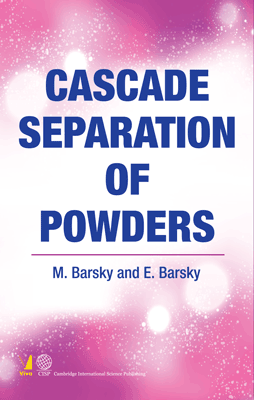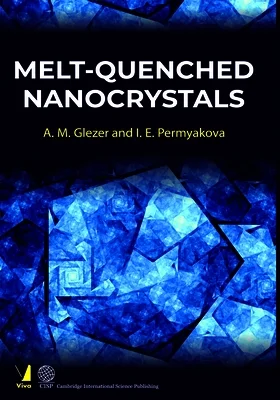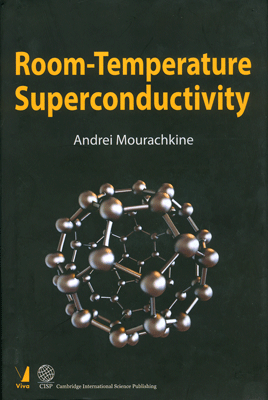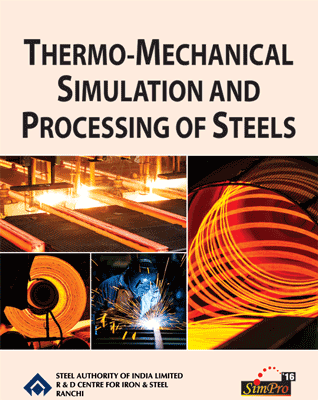Cascade Separation of Powders
Cascade Separation of Powders
₹1,705.50 ₹1,895.00 Save: ₹189.50 (10%)
Go to cartISBN: 9788130931418
Bind: Hardbound
Year: 2015
Pages: 480
Size: 153 x 229 mm
Publisher: Cambridge International Science Publishing
Published in India by: Viva Books
Exclusive Distributors: Viva Books
Sales Territory: India, Nepal, Pakistan, Bangladesh, Sri Lanka
Description:
The authors describe the theoretical work and practical results obtained in recent years in the area of separation of powders in moving flows. The promising nature of the cascade separation method is stressed. Mathematical models of regular, combined and irregular cascades are described. Mathematical fundamentals of the structural, dynamic and kinetics models of the process are presented. A new approach to optimising the separation processes, based on the separation curves and information theory, is explained. Experience with the industrial application of cascade classifiers is presented.
The main relationships obtained for cascade processes are of the phenomenological nature and can be used for cascade processes such as rectification, extraction, separation of isotopes, cascade drying of bulk materials, etc.
The book is suitable for scientists and engineering working on various aspects of powder technology and ore enrichment. It may also be used as a textbook for university and college students in the area of mining, engineering chemistry, metallurgy, energetics, constructional engineering, etc.
Target Audience:
The book is suitable for scientists and engineering working on various aspects of powder technology and ore enrichment. It may also be used as a textbook for university and college students in the area of mining, engineering chemistry, metallurgy, energetics, constructional engineering, etc.
Contents:
Preface
Chapter 1: Grain Size Composition of Bulk Materials • Methods of determination of the particle size • Size distribution of particles
Chapter 2: Methods of Optimisation of the Separation of Binary Mixtures • Determination of the efficiency of separation • Simplified optimisation indicators • Unique indicators of the process • Analysis of the criteria of quality of separation processes, differing from the Hancock method • Analysis of the applicability of the Hancock dependence in cases of changes in the composition of the initial product • Methods of direct optimisation of separation processes • Fraction separation curves • Relationship between separation curves and the quantitative indicators of the classification process • The quantitative criterion of quality based on separation curves
Chapter 3: Physical Fundamentals of the Process of Separation of Bulk Materials in Moving Flows • The general characteristic of the current state of theory • Special features of the movement of continuous flows • Settling and hovering of single particles • Special features of the formation of the two-phase flow in the separation conditions
Chapter 4: Statistical Fundamentals of the Process • Justification of the statistical approach • Numerical evaluation of the state of the statistical system • Main statistical characteristics of the separation factor • Determination of entropy for the two-phase flow in the separation regime • Main properties of entropy characterising the two-phase system • Transverse transfer in an upward two-phase flow • Determination of the main statistical relationships for the separation process • Separation with low concentration
Chapter 5: Kinematic Fundamentals of the Process • Mechanical interaction of particles • Forces from the interaction amongst particles of different size classes • Forces due to the interaction of particles with the channel walls • Equation of the dynamic model
Chapter 6: Empirical Fundamentals of the Process • Special features of separation in moving flows • Cascade principle of organisation of separation • Effect of the concentration of the solid phase • Phenomenon of equivalence in the partial separation of the solid phase by turbulent flows • Relationship between the hovering velocity of particles of the boundary size and the optimum velocity of the flow at classification • Nature of the effect of the density of separated materials on the main process parameters • Fractionation of very fine powders • Relationship of the separation capacity of apparatus with its height • Layer separation - the base of the mechanism of separation of particles in the flow
Chapter 7: Mathematical Models of Regular Cascades • Proportional model • Discrete model • Analysis of the mathematical model of a regular cascade • Separation in cyclic feed of bulk material into cascade apparatus • Absorbing Markov chains in the cascade classification of bulk materials
Chapter 8: Structural Model of the Process • Main problems of theory • Generalised coefficient of distribution based on the structure of the flow • Analysis of the generalised distribution coefficient • Analysis of the main experimental dependences from the viewpoint of the structural model • Verification of the adequacy of the structural model • Multirow classifier
Chapter 9: Irregular Cascades • Complex cascades • Unbalanced cascades • Uniform equilibrium cascade with additional flows • Mathematical model of a duplex cascade • The mathematical model of the process of cascade equilibrium classification with arbitrary separation coefficients
Chapter 10: Combined Cascade Processes • Main parameters • Some varieties of CSC of the type z x n • The mixed purification scheme • Combined scheme with consecutive recirculation • Combined cascade WITH bypass of both separation products • Multirow classifier
Chapter 11: Separation Curves for Cascade Processes • Main properties of separation curves • Approximations of separation curves • Efficiency of separation in the cascade • Evaluation of the efficiency of combined cascades
Chapter 12 Special, Processes of Fractionation of Powders • Multiproduct separation • Multiproduct separation in apparatus assembled from identical blocks • Equipment for multiproduct separation of powders • Criterion of the quality of separation into n components • Algorithms of optimisation of separation into n components • The mathematical model of separation into n components • Conditions of optimisation of separation of binary mixtures • Fractionation in a rarefied gas • Homothetic transformation of the powders by fractionation methods
Index
About the Authors:
Michael Barsky was born in 1936. He graduated in Mechanical Engineering from the Ural State Technical University of Katerinburg, Russia in 1960. He received his Ph.D. degree in 1964 and D.Sc. degree in 1971. In 1973 he was appointed the full professor. In 1990 he joined the staff of Ben-Gurion University of the Negev, Beer-Sheva, Israel. Professor Barsky's scientific interests lie in mass processes, separation of free-flowing materials in air and gaseous streams, dynamics of two-phase flows in critical regimes and physical foundations of flows of this type. Professor Barsky is the author of three books and of more than 200 scientific papers.
Eugene Barsky was born in 1974. He graduated in 1993 from Ben-Gurion University, Beer-Sheva, Israel, with a B.Sc. degree in mathematics. Thereafter, he received his M.Sc. degree in 1998 and Ph.D. degree in 2001 in Industrial mathematics. In 2002, he become a staff member of the Negev Academic College of Engineering. Beer-Sheva, Israel. His scientific interests lie in the mathematical modelling of technological Processes, optimisation and combinatorics. Dr. Barsky has published 15 articles.







